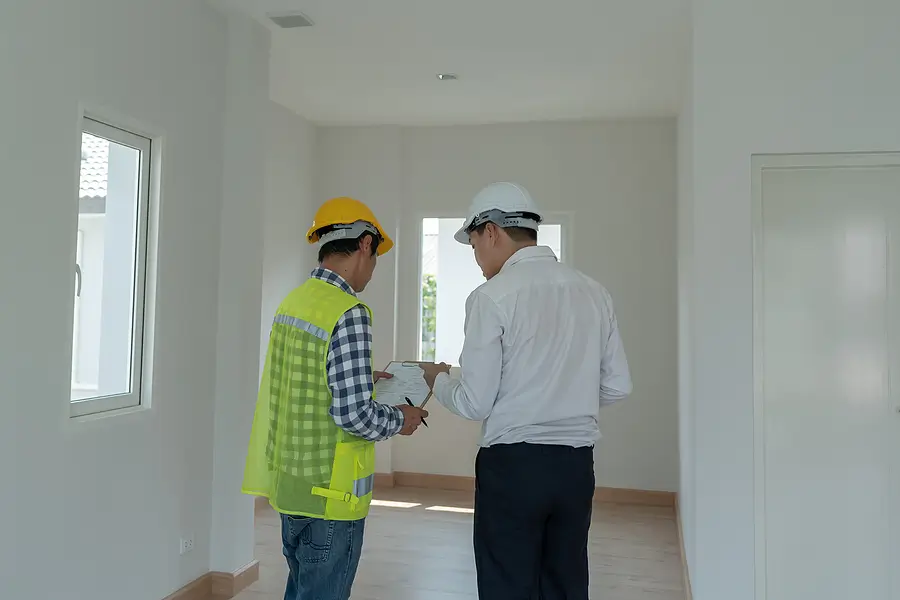Managing a rental property requires attention to detail, clear communication, and an organized approach to property management. One of the most crucial aspects of maintaining a rental property is conducting thorough and transparent property inspections. These inspections help you protect your investments, ensure tenant satisfaction, and comply with landlord-tenant laws.
Whether you’re a landlord handling inspections on your own or considering professional services, this guide will provide you with the best practices for a successful property inspection process.
Why Rental Property Inspections Matter
Regular property inspections serve multiple purposes:
Protecting the Property: Inspections help detect maintenance issues before they become costly problems. Addressing maintenance requests immediately ensures your property remains in excellent condition.
Ensuring Tenant Compliance: Inspections ensure tenants adhere to the lease agreement, preventing unauthorized modifications or damage.
Maintaining Rental Income: A well-maintained property attracts more renters, reduces vacancy rates, and protects your rental income.
Documenting Property Condition: A documented inspection helps resolve disputes regarding damage at move-out.
Enhancing Tenant Communications: Keeping tenants informed about inspections develops trust and prevents misunderstandings.
Types of Rental Property Inspections
There are several types of rental property inspections, each serving a different purpose.
Here are the types of rental property inspections:
Move-In Inspections
A move-in inspection is a critical step in documenting the condition of a rental property before a tenant takes possession. You should provide tenants with a detailed checklist covering all areas of the property, including walls, floors, appliances, plumbing, and electrical systems. High-quality photos or videos should accompany the report to create a clear record of the property's condition. This process protects both you and your tenants by preventing disputes over damages when the lease ends.
Routine Inspections
Regular inspections, typically conducted every three to six months, allow you to identify and address minor issues before they become costly repairs. They also help monitor tenant compliance with lease agreements and ensure that the property is being maintained properly. These visits also allow tenants to report maintenance requests, keeping maintenance costs under control. Rental property management software can efficiently schedule and document these inspections.
Move-Out Inspections
When a tenant moves out, a thorough inspection should be conducted to compare the property’s condition to the initial move-in report. Any damages beyond normal wear and tear can be documented, and deductions from the security deposit can be made accordingly. Move-out inspections also help you determine if late fees apply due to an unapproved extended stay. Conducting a detailed move-out inspection ensures a smoother turnover process for the next tenant.
Drive-By Inspections
Drive-by inspections are a quick, unnoticeable way to assess the exterior condition of your rental property. They help ensure that landscaping is maintained, exterior structures are intact, and there are no visible lease violations. Drive-by inspections are particularly useful if you manage multiple properties, as they allow for regular monitoring without requiring scheduled visits with tenants.
Pre-Lease Renewal Inspections
If a tenant expresses interest in renewing their lease, a pre-renewal inspection can help determine if any necessary repairs or updates should be completed before extending the agreement. This proactive approach ensures that small maintenance issues do not turn into major expenses. Pre-lease renewal inspections also provide an opportunity to assess tenant compliance with lease agreements and discuss any potential adjustments before signing new lease agreements online.
Best Practices for Thorough and Transparent Inspections
Conducting thorough rental property inspections is essential for maintaining property value, ensuring lease compliance, and developing positive landlord-tenant relationships. By following best practices, you can make inspections more efficient, transparent, and legally compliant.
Follow these best practices:
Notify Tenants in Advance
Providing tenants with proper notice before an inspection is not just a courtesy, it’s a legal requirement in many jurisdictions. Landlord-tenant laws often mandate at least 24 to 48 hours’ notice before entering a rental property. Giving tenants advance notice helps build trust and ensures they have time to prepare for the visit. Using rental property management software can streamline notifications, making it easy to send reminders via email or tenant portals.
Use a Standardized Inspection Checklist
A structured inspection checklist ensures that every inspection is thorough and consistent. It helps you track various aspects of the property's condition.
Such as:
Walls, floors and ceilings
Appliances and fixtures
Plumbing and electrical systems
Signs of damage or lease violations
A standardized approach helps you sign leases confidently, knowing they have a complete record of the property's condition.
Document Everything
Taking high-resolution photos and detailed notes during each inspection provides a reliable record of the property’s condition over time. Proper document storage is important for tracking maintenance requests, comparing move-in and move-out inspections, and handling disputes over security deposits or property damage. Property management software with built-in inspection documentation features can make this process more efficient.
Encourage Tenant Participation
Allowing tenants to be present during inspections promotes open communication and transparency. Tenants can voice any concerns, report maintenance issues, and clarify their responsibilities under the lease agreement. This also helps screen potential tenants in the future, as properties with a history of good tenant relations are more attractive to interested tenants.
Address Issues Promptly
Timely follow-up on inspection findings reassures tenants that their concerns are being taken seriously.
Immediate repairs help:
Prevent small problems from turning into costly repairs
Reduce maintenance costs in the long run
Increase tenant satisfaction and retention rates
Handling maintenance issues immediately encourages more renters to renew their lease and keeps rental income stable. It also helps attract prospective tenants when it’s time to re-rent the property.
Leveraging Technology for Smarter Inspections
Technology has made property inspections easier and more efficient. Many property management companies use rental property management software to streamline the process. Features such as online property management software, document storage, and expense tracking help you stay organized.
Tools like online rent collection and the ability to sign lease agreements online make leasing and collecting rent payments more convenient. Integrating these digital solutions can enhance efficiency and reduce administrative work.
Why Landlords Should Hire a Professional Inspection Service
While DIY inspections may seem cost-effective, hiring a professional service offers numerous benefits.
Here are the benefits:
Expertise and Thoroughness: Professional inspectors know what to look for, ensuring that no issue is overlooked.
Time Savings: You can focus on other tasks while the inspection process is handled efficiently.
Unbiased Reports: A third-party inspection reduces disputes between you and your tenants.
Compliance with Regulations: Professional inspectors are familiar with local laws and regulations, helping you stay compliant.
How Oz Accommodations Handles Property Inspections
At Oz Accommodations, we partner with Inspections etc to provide high-quality, professional-grade inspections.
Here’s what makes our process stand out:
Detailed and Transparent Reports: Our inspections go beyond the standard checklist, offering in-depth assessments with high-quality photography.
Protection for Property Owners: We help you avoid costly repairs by identifying issues early.
Objective and Unbiased Evaluations: Our third-party inspections ensure fairness and accuracy.
Enhanced Tenant Relations: We believe that clear communication develops positive landlord-tenant relationships, leading to better lease compliance.
Let Oz Accommodations & Inspections etc. Protect Your Investment
Conducting thorough and transparent rental property inspections is essential for maintaining your rental property investment. By following best practices, you can protect your assets, ensure tenant compliance, and prevent disputes.
If you want a professional approach, Oz Accommodations, in partnership with Inspections etc, provides expert inspection services that help maximize rental property performance. Whether you're a seasoned investor or a first-time landlord, our team of property managers and property management solutions offer peace of mind and efficiency.
If you’re ready to take your rental property inspections to the next level, contact us today and let us handle the details for you!


